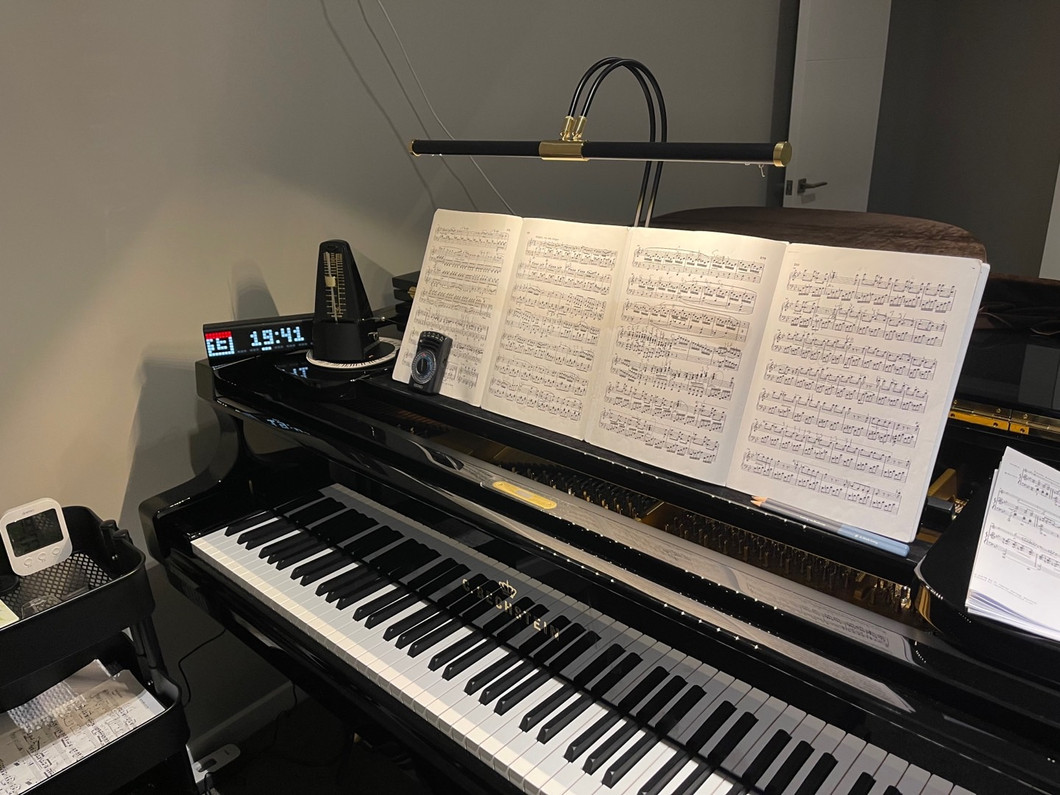Enhancing Your Piano Playing Experience: The Importance of Proper Lighting
Playing the piano is a journey of expression, creativity, and technical prowess. Every pianist, whether a beginner or a seasoned virtuoso, knows that the environment in which they practice and perform can significantly impact their experience and performance. One often overlooked yet crucial aspect of this environment is lighting. Proper lighting can make a world of difference in your piano playing experience. Here’s why.
The Role of Lighting in Piano Playing
Visual Clarity
Reading sheet music requires visual precision. Poor lighting can strain your eyes, making it difficult to distinguish notes, dynamics, and other musical notations. This strain can lead to mistakes and frustration. Adequate lighting ensures that you can see the sheet music clearly, reducing errors and allowing for a smoother playing experience.
Posture and Comfort
Proper lighting can influence your posture at the piano. When the lighting is inadequate, you might find yourself leaning closer to the sheet music or squinting, which can lead to poor posture and discomfort. Over time, this can cause physical strain or injury. Good lighting encourages a natural, relaxed posture, contributing to a more comfortable and enjoyable practice session.
Mood and Concentration
Lighting affects your mood and concentration levels. Bright, natural light can make you feel more alert and focused, while dim lighting can make you feel sluggish and unfocused. By optimizing your lighting, you create an environment that is conducive to concentration and creativity, enhancing your overall practice efficiency.
Tips for Optimal Piano Lighting
Natural Light
Whenever possible, use natural light. Position your piano near a window where it can receive ample daylight. Natural light is easy on the eyes and can improve your mood and energy levels. However, be mindful of glare on your sheet music or piano keys, which can be distracting.
Adjustable Lamps
Invest in a good quality, adjustable piano lamp. These lamps can be positioned to illuminate your sheet music directly without casting shadows. Look for lamps with adjustable brightness settings so you can tailor the light to your needs, whether you’re practicing during the day or night.
Ambient Lighting
In addition to focused lighting on your sheet music, ensure the room has sufficient ambient lighting. A well-lit room can prevent harsh contrasts between the bright light on your music and the surrounding darkness, which can strain your eyes.
Avoid Harsh Lighting
Avoid using overly bright or harsh lighting that can create glare or cause discomfort. Soft, diffused lighting is often best, as it provides adequate illumination without being overwhelming.
Consistency is Key
Aim for consistent lighting conditions. Frequent changes in lighting can disrupt your practice routine and make it difficult to establish a comfortable and effective practice environment. Try to maintain a regular practice space with stable lighting conditions.
Conclusion
Proper lighting is a simple yet essential element that can significantly enhance your piano playing experience. By ensuring your practice space is well-lit, you can improve visual clarity, maintain good posture, and boost concentration. For those seeking an optimal lighting solution, consider the Cocoweb Piano Light. Designed with pianists in mind, it offers adjustable brightness, advanced LED technology, and an elegant design that complements any piano. Investing in a Cocoweb Piano Light means creating an environment where you can thrive as a pianist, focusing on your music without worrying about inadequate lighting. Illuminate your practice space and experience the difference proper lighting can make in your musical journey. Happy playing!
Recent Posts
-
How to Choose the Perfect Painting for Your Home or Office
When it comes to decorating your space, choosing the perfect painting can be a game-changer. A well- …7th Feb 2025 -
How Post Lights Improve Home Security and Safety
How Post Lights Improve Home Security and SafetyWhen it comes to securing your home and enhancing sa …9th Jan 2025 -
The Best LED Gooseneck Barn Lights for Different Architectural Styles
When it comes to outdoor lighting, barn gooseneck lights are a timeless classic. Their vintage cha …12th Dec 2024




